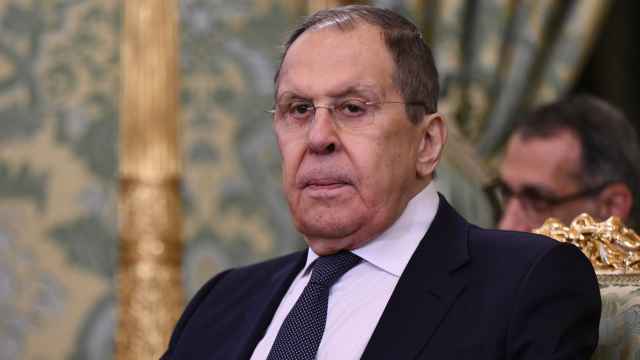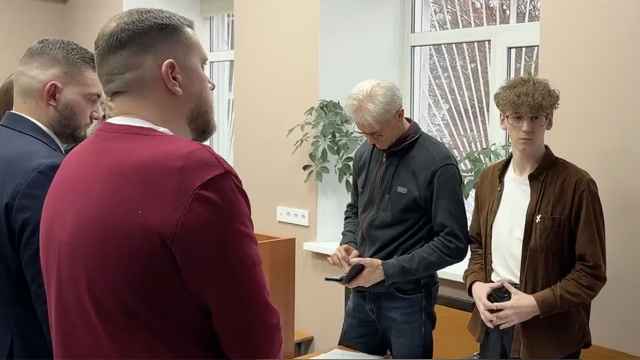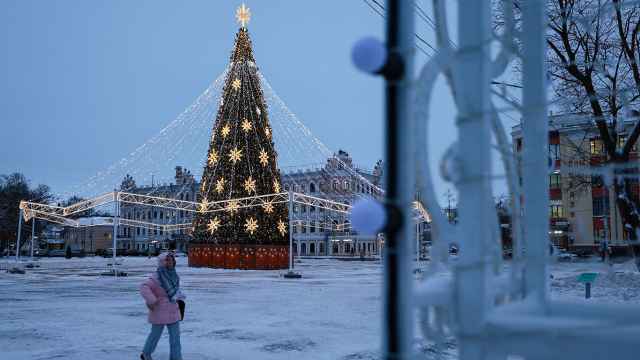ISTANBUL — The price of Russian gas and the future of several energy projects, including a $20 billion Russian-built nuclear plant, loom over a visit by Turkish Prime Minister Tayyip Erdogan to Moscow this week.
Accompanied by Foreign Minister Ahmet Davutoglu and Energy Minister Taner Yildiz, Erdogan is due to meet both Prime Minister Vladimir Putin and President Dmitry Medvedev during the visit that begins Tuesday and ends Thursday.
Turkey is a major player in the $10.8 billion Nabucco project, backed by the European Union, to pipe gas from Turkmenistan to Europe, while Russia has proposed the rival South Stream pipeline, under the Black Sea and through Turkish and Bulgarian territorial waters.
Putin indicated last week that Russia might drop plans to lay the underwater section and build a liquefied natural gas plant instead because of risks posed by new European energy rules.
"The South Stream project will be discussed," Putin's spokesman Dmitry Peskov said. "Energy dialogue is a very important part of our bilateral relations. All aspects of our energy dialogue will be discussed."
Turkey buys 64 percent of its gas from Russia, 40 percent of its oil and a large amount of coal too. As a result, Russia's total exports to Turkey in 2010 were $21.6 billion, whereas Turkey's exports were just $4.6 billion.
While Gazprom has already offered discounts to some Western customers, discounts for Turkish state pipeline operator Botas have not been settled, with discussions focused on the "take-or-pay" element in the contract.
Competing against other states to secure supply, Turkey had contracted to buy more gas than it actually uses and now wants to move to more flexible terms. It also wants a new formula to determine prices and move off the oil index.
Botas will sell its contracts to import 6 billion cubic meters of Russian gas to private-sector firms, and a Gazprom unit is among the companies interested. Gazprom also wants to build underground gas storage units in central Turkey.
On crude oil, Russia may supply 25 million tons per year, or about half of the capacity of a planned pipeline from the Black Sea to the Mediterranean that is strongly backed by the government. No deal has been signed.
Energy analysts say Turkey must weigh the benefits of interdependence against the risks of overdependence.
"There is a danger that Turkey could become too overly dependent on Russia for energy," said Gareth Winrow, director of research at Sidar Global Advisers. "It's not just the natural gas; it's the nuclear, when Turkey will become dependent on imports of enriched uranium from Russia and on Russian nuclear technology."
Necdet Pamir, an Ankara-based energy analyst, criticized a deal agreed upon last May for Russia to build Turkey's first nuclear power plant on the Mediterranean coast.
Pamir said the terms lack technology transfer, power from the plant would be too expensive, and it would increase overall dependency on Russia.
Turkish officials expect some discussion on the phasing and Turkish firms' involvement during this week's meetings.
A Message from The Moscow Times:
Dear readers,
We are facing unprecedented challenges. Russia's Prosecutor General's Office has designated The Moscow Times as an "undesirable" organization, criminalizing our work and putting our staff at risk of prosecution. This follows our earlier unjust labeling as a "foreign agent."
These actions are direct attempts to silence independent journalism in Russia. The authorities claim our work "discredits the decisions of the Russian leadership." We see things differently: we strive to provide accurate, unbiased reporting on Russia.
We, the journalists of The Moscow Times, refuse to be silenced. But to continue our work, we need your help.
Your support, no matter how small, makes a world of difference. If you can, please support us monthly starting from just $2. It's quick to set up, and every contribution makes a significant impact.
By supporting The Moscow Times, you're defending open, independent journalism in the face of repression. Thank you for standing with us.
Remind me later.





